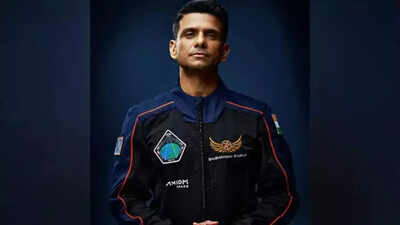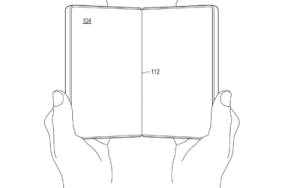Shubhanshu Shukla, currently aboard the International Space Station (ISS) as part of the Axiom-4 (Ax-4) mission, is set to interact with students and scientists at the Indian Space Research Organisation (ISRO) on July 4. This unique event will utilize ham radio and is organized under the ARISS (Amateur Radio on the International Space Station) program.

The Ax-4 mission, a 14-day commercial spaceflight by Axiom Space, involves four astronauts conducting scientific research crucial for future long-duration spaceflights.
The ARISS program facilitates this live conversation, bridging space exploration and education. The interaction will occur via a telebridge at the U R Rao Satellite Centre (URSC) in Bengaluru. Communication will be relayed through the K6DUE ground station. According to reports, the session is scheduled for 3:47 PM IST (10:17 UTC) on Friday.
Ham radio, or amateur radio, is a licensed communication system operating on non-commercial radio frequencies. It's widely used by enthusiasts and as a reliable backup during emergencies when standard communication fails. In space missions, it offers a direct, hands-on communication method, connecting astronauts with students and amateur operators.
While on the ISS, Shubhanshu Shukla is involved in several experiments:
Microalgae are being studied as a sustainable and nutrient-rich food source for astronauts. They also play a vital role in oxygen recycling and waste management. Shukla has planted microalgae samples and is documenting their growth through high-resolution photos. Understanding the impact of microgravity on algae growth is crucial for developing closed-loop life-support systems, essential for missions to the Moon, Mars, and beyond.
This project uses virtual reality headsets to assess cognitive performance in microgravity. Astronauts wear the headsets and perform attention-based tasks while their brain activity is monitored using functional near-infrared spectroscopy (fNIRS). This data helps scientists understand how space travel affects mental acuity, motor function, and memory.
This research focuses on integrating biometric data with AI-based mission analytics. The goal is to monitor the effects of space on cardiovascular health and balance systems using real-time data analysis and predictive models. This could revolutionize in-flight medical monitoring and enable remote diagnostic devices for use in rural or emergency situations on Earth.
Newer articles
Older articles
 Vitamin D Could Slash Tooth Decay Risk by 50%, Study Suggests
Vitamin D Could Slash Tooth Decay Risk by 50%, Study Suggests
 Indian Cricket Star Mukesh Kumar and Wife Divya Singh Announce Birth of Son
Indian Cricket Star Mukesh Kumar and Wife Divya Singh Announce Birth of Son
 Prithvi Shaw Credits Sachin Tendulkar's Guidance for Career Revival After Setbacks
Prithvi Shaw Credits Sachin Tendulkar's Guidance for Career Revival After Setbacks
 Shubman Gill's Captaincy Under Fire: Bold Calls Needed After England Test Defeat
Shubman Gill's Captaincy Under Fire: Bold Calls Needed After England Test Defeat
 Microsoft Aims for Foldable Redemption with Novel Hinge Design to Rival iPhone and Android
Microsoft Aims for Foldable Redemption with Novel Hinge Design to Rival iPhone and Android
 Popular Finance YouTuber's Account Hacked, Bitcoin Scam Promoted: Security Lessons Learned
Popular Finance YouTuber's Account Hacked, Bitcoin Scam Promoted: Security Lessons Learned
 Hollywood's Love Affair with India: Iconic Film Locations Revealed
Hollywood's Love Affair with India: Iconic Film Locations Revealed
 Esha Gupta Breaks Silence on Hardik Pandya Romance Rumors: 'We Were Just Talking'
Esha Gupta Breaks Silence on Hardik Pandya Romance Rumors: 'We Were Just Talking'
 Ashada Gupt Navratri 2025: Unveiling Dates, Timings, Significance & Secret Rituals
Ashada Gupt Navratri 2025: Unveiling Dates, Timings, Significance & Secret Rituals
 Rishabh Pant Aims to Surpass Virat Kohli in Test Century Tally During England Series
Rishabh Pant Aims to Surpass Virat Kohli in Test Century Tally During England Series